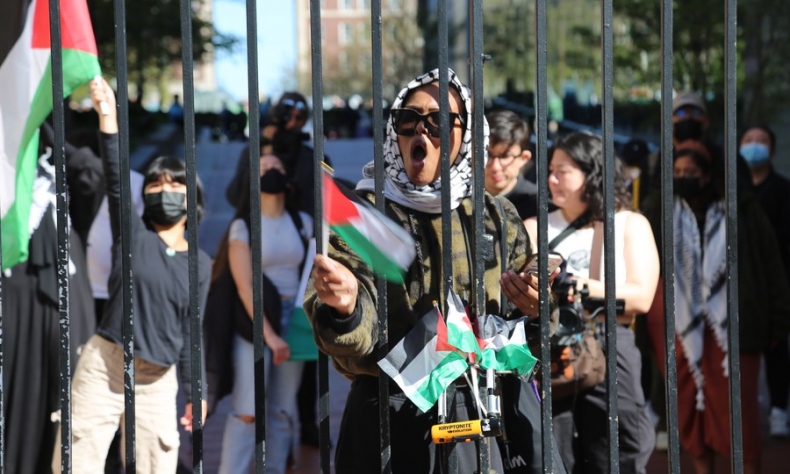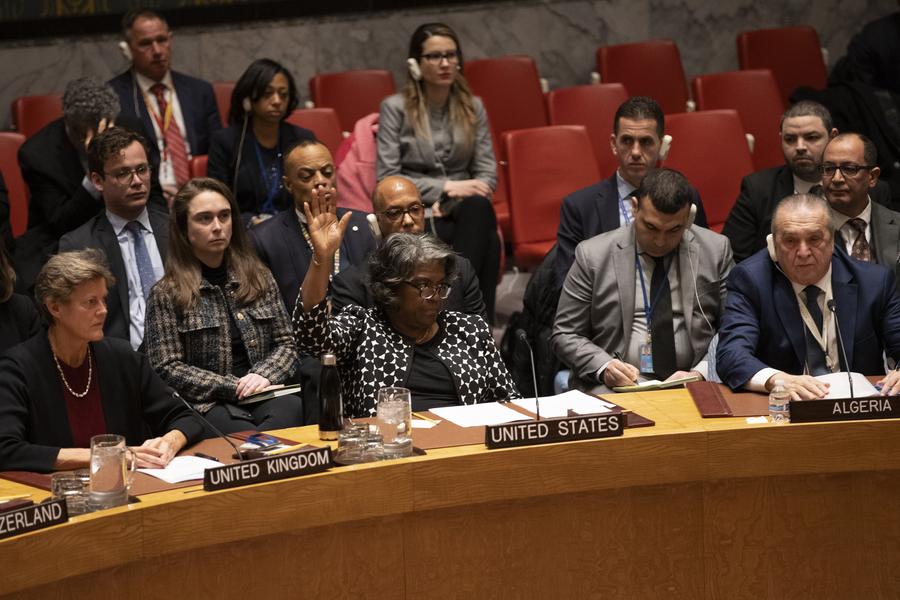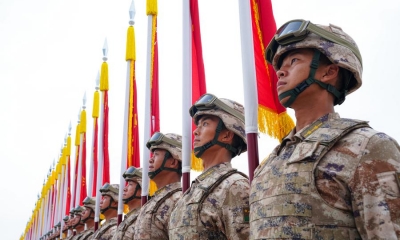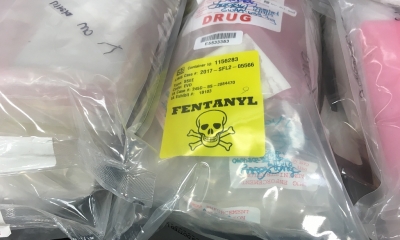College Protests Showing Deep Divisions in the U.S. over Gaza Crisis

Public opinion is clear: A majority of Americans reported last month and again this month that they disapprove of the Israeli military’s actions in Gaza.
Reality is reality, and therefore everything President Joe Biden says and does this year will be analyzed through crass political calculus. Will his decisions appeal to the American public?
That reality alone should make the Biden administration wary of how they respond to the growing protests throughout the United States, and most especially on America’s college campuses, about the crisis in Gaza. But more important than any selfish interests are another reality: The humanitarian crisis there grows worse by the day. The White House is the only international voice that Israeli leaders might listen to as they continue to fight a war against Hamas that also leads to thousands of innocent people dying or being injured. But will the president use that voice powerfully, publicly and often in demanding an end to the fighting?
According to one estimate, more than 34,000 Palestinians have died and more than 77,000 have been injured since the Israeli invasion began more than six months ago, far exceeding the estimated 1,100 Israelis killed when Hamas attacked Israel on October 7 of last year. Most of the casualties are women and children. Americans are telling Biden that they want him to do more to end the crisis. There are doubts that he will.
Before we go any further, it is important to understand the purpose of this article: to acknowledge that the humanitarian disaster weighs heavily on American public opinion. Attempting to offer a dispassionate argument that does not defend or criticize Israel or Hamas might be foolish, especially recognizing America’s divided society, nevertheless analyzing what the president is doing right now demands such a stance.
Public opinion is clear: A majority of Americans reported last month and again this month that they disapprove of the Israeli military’s actions in Gaza. Just last week, for example, CBS News noted that an “increasing number of Americans want President Biden to encourage Israel to stop military actions in Gaza; and Mr. Biden’s handling of the situation is now down to its lowest levels yet.”
What Americans want and what the president has done do not align. Remember, it was the United States that roadblocked multiple ceasefire resolutions offered up by the United Nations in recent months. The U.S. ambassador to the UN defended one veto in February claiming that such a resolution might derail talks that would have led to a release of hostages. Fast forward two months and one conclusion can be drawn: Those talks were a failure because hostages remain.

America is not perfect — no nation is — but it can acknowledge that it has often been the first country to offer sustained humanitarian aid to other nations when they are in the most need. Americans are proud of their country’s legacy of sending people and goods all over the globe whenever a crisis emerges. That history explains why the American people now want to hear much more about “humanitarian relief” and much less about a “humanitarian crisis.”
Those sentiments are being most loudly, and in the minds of some people controversially, shared by college students.
In the U.S., college students, beginning in New York and since expanding to other states, are protesting the bloodbath in Gaza. One publication that reports on issues throughout higher education examined the situation at Columbia University and called what was happening there “a full-blown crisis.” The university’s leaders allowed New York City police to arrest more than 100 people, and they suggested students detained by police might face academic suspension. One leading U.S. politician is demanding Columbia’s president resign claiming she is a “very weak and inept leader” who “cannot even guarantee the safety of Jewish students.” Meanwhile, at nearby New York University, another roughly 100 students were arrested by city police.
Two facts to remember: The majority of the protesters are in support of the Palestinian people, and Jewish students on multiple college campuses say the rhetoric they hear often crosses the line between voicing an opinion and engaging in hate speech.
Peaceful protest has a long history in the United States. It should be honored as one of the essential freedoms American citizens have. Students engaging in that type of behavior ought not to be punished; whether you or I agree with their position cannot mask that the law defends their right to speak out in favor of (or against) an issue important to them. They should not be lumped into the same category as those people who savor law-breaking or support hate speech. Such people should face sanctions for abusing that freedom to speak up.
So far, Biden has chosen to say little about the developing protests on multiple college campuses. What he has said is clear: He believes the majority of protesters are interested in violence. Earlier this week, he said, “I condemn the antisemitic protests, that’s why I set up a program to deal with that. I also condemn those who don’t understand what’s going on with the Palestinians.”
Biden did not elaborate on whatever program he was referring to, by the way.
A final thought: Biden has acknowledged he had little tolerance for protesters during the Vietnam War, using a derogatory word to define them and noting he was “far apart from the antiwar movement.” If he is far apart again in 2024, one wonders if the words “humanitarian relief” will not be heard at all this year.
The article reflects the author’s opinions, and not necessarily the views of China Focus.
 Facebook
Facebook
 Twitter
Twitter
 Linkedin
Linkedin
 Google +
Google +







